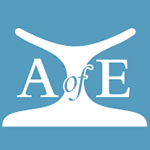Somers Clarke
English architect and archaeologist; he was born in Brighton, 22 July 1841, son of Somers C., a solicitor, and Sarah Blaker; he was educated privately and later entered the office of Sir Gilbert Scott being mainly engaged in the restoration of churches; he was made Surveyor of the Fabric, St. Paul’s Cathedral, 1897, and appointed Architect to the Dean and Chapter of Chichester Cathedral, 1900, retiring in 1922; FSA, 1881; he retired from general practice, 1902, afterwards making Egypt his home; he frequently had visited Egypt, and in 1893 joined J. J. Tylor in explorations at Elkab, afterwards assisting Quibell and Green during the excavations at Hierakonpolis; he later superintended the restoration of several temples and other buildings in Egypt; he also visited Nubia and the Sudan with Sayce, 1909-10, before writing his book on Christian churches; he brought a new standard to the study of buildings and their remains in the 1890s before Reisner and Borchardt had started their work and his plan and section of the temple of Hierakonpolis showed for the first time in Egyptian archaeology an understanding of stratification although soon outmoded by later work in the Near East; he also made the plans and elevations for the tomb of Sobeknakht at Elkab, 1896, and that of Renni, 1900, and for the temple of Amenhotep III, 1898; he lived at the end of his life at Heliopolis and at Elkab, where he built himself a large mud brick house at Mehamid; he published articles in the Journal of the Soc. of Ant., JEA, etc.; his important works were, Report on certain excavations made at El-Kab ... I. Excavations 1901, see A. H. Sayce, 1905; the architectural descriptions in Naville’s XIth Dynasty Temple at Deir el Bahari, pt. 2, 1910; Christian Antiquities in the Nile Valley, 1912; Les Temples Immergés de la Nubia, 4o, with G. B. Mileham, 1920; Ancient Egyptian Masonry: The Building Craft, with R. Engelbach, 1930; his note-books are now and other papers are in the Griffith Institute; his negatives of Elkab are in the Dept. of Ancient Egypt and Sudan, British Museum; he died in Mehamid, 31 Aug. 1926.
